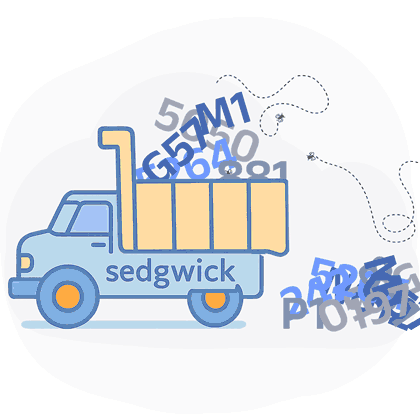CA DWC: Routinely Violating IBR Law - Failing to Protect Doctors
.gif)
Statewide records show that the California Division of Workers’ Compensation (CA DWC) routinely and brazenly violates a critical law legislators put in place to protect providers who treat injured workers.
California Labor Code Section 4603.6 demands that the CA DWC assign a provider’s Independent Bill Review (IBR) request to the independent reviewer, Maximus, within 30 days of receiving the request.
Yet, IBR records demonstrate that the agency has consistently blown past the assignment deadline year after year, with the percentage of late assignments escalating exponentially.
From our analysis of 16,125 IBR disputes providers submitted from 2018 through 2025, daisyNews can demonstrate indisputably that the CA DWC violates its statutory obligation to providers the majority of the time, leaving many unpaid or underpaid for months.
The IBR data proves, once again, that the CA DWC simply ignores vital laws California legislators passed to protect providers who treat the state’s injured workers.
Providers: Pay $195 and Play by the Rules (Or Else)
California law requires a provider to pay $195 and file an IBR request within 30 days of receiving an Explanation of Review in response to their Second Review appeal to dispute and incorrect payment.
If the provider fails to meet this IBR deadline, they forfeit every cent owed.
The law is equally clear for the CA DWC: Within 30 days of receiving a provider’s IBR request and the $195 fee, the agency must assign the dispute to Maximus, the independent reviewer contracted by the state. Labor Code § 4603.6 spells it out (emphasis ours):
“Upon receipt of a request for independent bill review and the required fee, the administrative director [of the CA DWC] or the administrative director’s designee shall assign the request to an independent bill reviewer within 30 days and notify the medical provider and employer of the independent reviewer assigned.”
Maximus has 60 days from the date of assignment to render its decision. That means a provider who pays the IBR fee and files on time should—by law—receive a resolution no more than 90 days from when CA DWC receives the IBR request.
The Data Don’t Lie
Our analysis of 16,125 IBR disputes statewide shows that since 2018, the CA DWC has violated its own statutory deadline the majority of the time.
Out of 16,125 disputes, the CA DWC took more than 30 days to assign 10,315 to Maximus. Even worse, the late assignment rate skyrocketed from 31% in 2018 to a jaw-dropping 87% so far in 2025.
IBR Request Receipt Year |
IBR Case Total |
Timely Assignments |
Timely Assignment % |
Late Assignments (30+ Days) |
Late Assignment % |
2018 |
1,140 |
791 |
69% |
349 |
31% |
2019 |
813 |
610 |
75% |
203 |
25% |
2020 |
1,446 |
916 |
63% |
530 |
37% |
2021 |
3,172 |
936 |
30% |
2,236 |
70% |
2022 |
2,790 |
547 |
20% |
2,243 |
80% |
2023 |
2,505 |
498 |
20% |
2,007 |
80% |
2024 |
3,476 |
1,412 |
41% |
2,064 |
59% |
2025 |
783 |
100 |
13% |
683 |
87% |
Remember, requesting IBR a single day late means automatic reimbursement forfeiture for a provider. For the CA DWC, months of delay carry no consequences.
Maximus: Doing Its Job While the CA DWC Doesn’t
In better news, our analysis shows that Maximus met its 60-day deadline for Final Determinations 100% of the time statistically across the state.
Even better, 90% of the time, Maximus determined that the claims administrator owed the provider additional reimbursement.
As long as the CA DWC actually assigns a dispute to Maximus, the odds are in the provider’s favor.
IBR Receipt Year |
IBR Case Total |
0 to 59 Days IBR Assignment to Decision |
Timely Decision % |
60+ Days IBR Assignment to Decision |
Untimely Decision % |
2018 |
1,140 |
1,136 |
100% |
4 |
0% |
2019 |
813 |
797 |
98% |
16 |
2% |
2020 |
1,446 |
1,442 |
100% |
4 |
0% |
2021 |
3,172 |
3,163 |
100% |
9 |
0% |
2022 |
2,790 |
2,787 |
100% |
3 |
0% |
2023 |
2,505 |
2,503 |
100% |
2 |
0% |
2024 |
3,476 |
3,473 |
100% |
3 |
0% |
2025 |
783 |
782 |
100% |
1 |
0% |
CA DWC Erases Damning IBR Data
The CA DWC’s website currently makes IBR Final Determinations available for disputes only as far back as 2022. Fortunately, daisyBill has maintained IBR determination records going back to 2013.
We’re not surprised that the CA DWC has removed information from its website. As daisyNews repeatedly points out, the CA DWC has a long history of removing critical information from its website. It also routinely fails to collect, analyze, or publish data, even when the law requires it.
Now, older IBR decisions have simply vanished from public access.
When data disappears, accountability disappears with it.
The Compliance Double Standard
The CA DWC enforces strict compliance with billing laws and regulations for providers, but excuses its own repeated, well-documented violations of the law, which it fails to uphold to the benefit of payers who owe additional reimbursement to providers in 90% of IBR disputes.
This double standard rewards payer delays while disadvantaging providers, leaving them without timely recourse to dispute incorrect payments.
daisyNews will keep tracking and reporting the numbers and holding the CA DWC accountable, because no one else is.
daisyBill tracks your bills and payments, so your practice always knows the score. Click below to learn more:
BILL BETTER
DaisyBill provides content as an insightful service to its readers and clients. It does not offer legal advice and cannot guarantee the accuracy or suitability of its content for a particular purpose.





.gif)

CA DWC does very few things timely. Just look at the backlog of petitions for reconsideration from it's own trial judges that were granted 3-4-5 years ago. Then the time it's taking for the appellate courts to make decisions on what to do with all those cases. It is not a surprise that they can even assign an IBR referral on time. At least Maximus moves on time and it's good news they resolve in favor of the provider. But, then when isn't the carrier paying the bill penalized more than just having to pay the IBR. Does the DIR audit the carriers on this issue?
Why doesn’t IBR impose LCS 4603.2b and automatically apply Interest & Penalty to any additional amount awarded/owed to Medical Provider’s? I request Interest/Penalty on every IBR Submission and have never been awarded what is legally due.